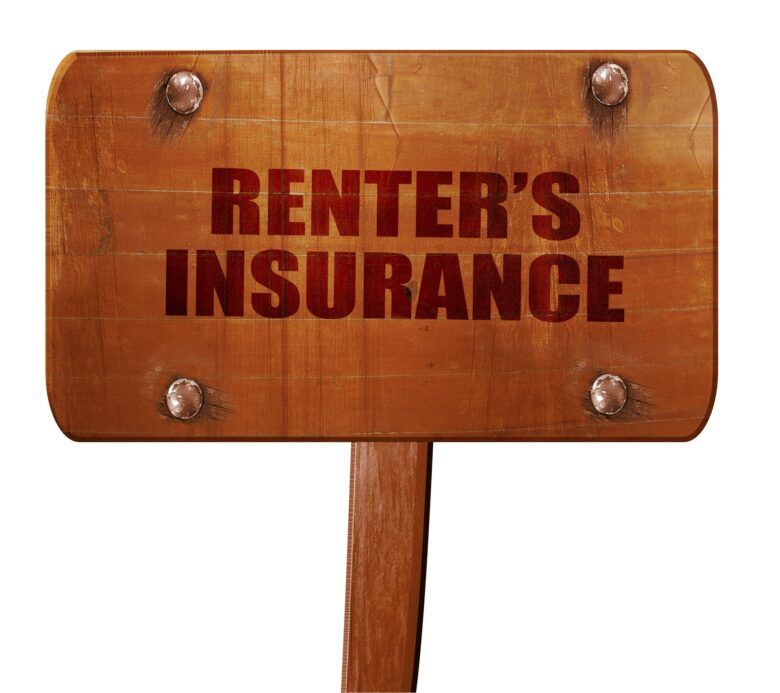Renters insurance is a great idea for any renter because it protects your belongings, covers your responsibilities, and gives you peace of mind. On the other hand, it can be difficult to figure out how much renters insurance will cost. Many factors influence the premium you pay. Understanding these will help you make an informed choice and get the best deal. This article discusses the various factors that affect the cost of renters insurance and gives you tips on how to control costs and lower your premiums.
What is Renters Insurance?
Before looking at prices, it’s important to understand what renters insurance is and why it’s important. Renters have insurance that provides them with financial protection if their property is lost or damaged. It also covers liability issues if someone is injured in your rental property, as well as additional living expenses if your home becomes uninhabitable due to a covered peril. This is different from homeowners insurance; the renter’s insurance does not cover the construction of the building; that is the landlord’s job. However, it closes important gaps by protecting your assets and covering your liabilities.
Factors Influencing Renters Insurance Costs
The price of renters insurance depends on many factors. Knowing these can help you understand your rates and determine what to do with them. Here are some important things:
1. Location of the Rental Property
The location of your rental property has a major impact on the cost of your insurance. Insurance rates tend to be higher for homes in high-crime areas or areas prone to natural disasters such as storms, earthquakes, and hurricanes. Insurance companies look at your location and the dangers associated with it and adjust your rates to reflect that.
2. Coverage Amount
Your rate is directly related to the amount of liability and personal property coverage you choose. It costs more to get larger coverage limits, but they provide more protection. It’s important to accurately estimate the value of your assets and choose coverage that will give you adequate protection without going overboard.
3. Deductible Amount
The amount you must pay out of pocket before your insurance starts paying. If you choose a larger deductible, your premium will be lower, but you will have to pay more upfront if you need to make a claim. On the other hand, a smaller deductible means a higher premium, but you’ll have to spend less money out of pocket when you make a claim. It’s important to find a balance that suits your income and risk tolerance.
4. Type of Coverage
Most renters insurance policies cover two types of personal property: the actual cash value (ACV) of the item and the replacement cost value (RCV). If your items decline in value over time, ACV insurance will reimburse you for the current market value of those items. RCV insurance, on the other hand, covers the cost of replacing these items with new ones of the same type and quality. RCV insurance usually has higher premiums but can offer you more comprehensive protection.
5. Security Function
Adding safety and security features to your rental property can save you money on renters insurance. Some home security features, such as smoke detectors, burglar alarms, deadbolts, and fire extinguishers, can save you money and make your home safer. Insurance companies often offer lower home insurance rates if these safety measures are in place.
6. Claim History
Your renter’s insurance rates can be affected by the number of claims you have made in the past. Some insurance companies may charge you a higher premium if you have made multiple claims in the past. Maintaining your claim-free record can help keep rates low.
7. Insurance Company and Any Discounts
Different insurance companies charge different amounts for renters insurance, so it’s important to get quotes from multiple companies. Many insurance companies also offer discounts, allowing you to pay less in premiums. A good credit score, not smoking, and bundling your renter’s insurance with other policies (such as car insurance) are all common ways to get a discount.
Average Cost of Renters Insurance
The above factors can cause the cost of renters insurance to vary widely, but in the United States, the average cost is not too high. The National Association of Insurance Commissioners (NAIC) says the average renter’s insurance rate is about $180 per year, or about $15 per month. However, this is only a general estimate. Depending on your unique situation, your actual premium may be higher or lower.
Conclusion
To calculate the cost of renters insurance, you need to consider where you live, the amount of coverage you need, your deductible, the type of coverage you need, and the security features of your home. Understanding these issues and taking steps to deal with them can help you get the security you need at an affordable price. You can lower the cost of renters insurance by shopping around, getting multiple quotes, increasing your deductible, bundling your plans, and keeping your credit score high. Finally, renters insurance can give you peace of mind by covering your belongings and providing you with financial protection if something bad happens.
FAQs
1. How do you find out how much renters insurance costs?
The cost of renters insurance depends on many factors, such as the location of your rental property, the amount of coverage you need, the deductible you choose, the type of insurance (actual cash value or replacement cost), the security features of your home, your previous claims history and any discounts you may be eligible for. Insurers use this information to calculate your rates.
2. What is the difference between replacement cost value (RCV) and actual cash value (ACV)?
You pay for Current Cash Value (ACV) insurance based on the current market value of your lost item. Replacement cost value insurance (RCV), on the other hand, reimburses the costs of purchasing new items of the same type and quality, regardless of their loss in value. RCV cover is generally higher but can give you more comprehensive protection.
3. Will my credit score change how much I pay for renters insurance?
Yes, your credit score affects how much you pay for renters insurance. Insurance companies often use credit scores to determine how risky it is to insure you. If you have a higher credit score, your interest rate may decrease, and if you have a lower credit score, your interest rate may increase. Paying your bills on time and paying off your debts can help you maintain a higher credit score and get better insurance rates.
4. Is there a way to get renters insurance at a lower cost?
Yes, many insurance companies offer discounts on renters insurance. Some common ways to get a discount include bundling multiple policies (such as auto and renters insurance), installing security features such as smoke detectors and burglar alarms, maintaining a claim-free history, and having good credit. When you get a quote from your insurance company, ask if you can get discounts.
5. How often should I check and make changes to my renter’s insurance policy?
You should review and change your renters insurance policy at least once a year, or whenever there is a significant change in your living situation. Acquiring something new of value, moving to a new rental property, or improving your rental location are all examples of this. Reviewing your coverage regularly will keep it current and up to date, protecting you from sudden financial loss.



